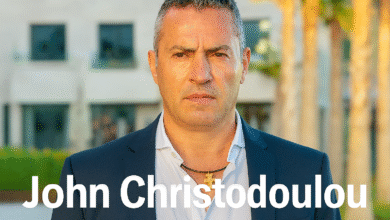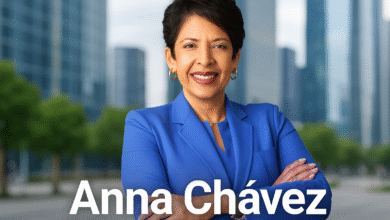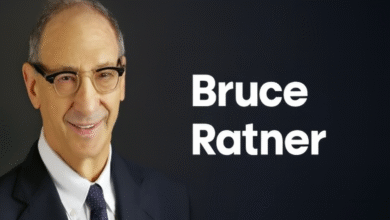How to Become a Certified Coach: Your Complete Roadmap to Professional Success

Getting your coaching certification isn’t just about adding credentials to your name—it’s about transforming your ability to create real change in people’s lives while building a sustainable career doing what you love. Whether you’re already helping friends navigate life challenges or you’re completely new to the field, the path to becoming a certified coach is more straightforward than you might think.
Why Coaching Certification Matters More Than Ever
The coaching industry has exploded in recent years, but that growth brings both opportunity and challenge. Clients today are savvier than ever—they want to work with coaches who have proven expertise, not just good intentions. A proper coaching certification gives you the credibility, skills, and business foundation you need to stand out in a crowded market.
More importantly, certification ensures you’re actually equipped to help people. Raw enthusiasm isn’t enough when someone trusts you with their career transition, relationship struggles, or personal goals. You need proven methodologies, ethical guidelines, and practical experience that only comes from structured training.
Understanding the Coaching Certification Landscape
Before diving into how to get certified, let’s clear up some confusion about what coaching certification actually means. Unlike therapy or counseling, coaching isn’t regulated by government agencies in most places. This means anyone can technically call themselves a coach, but it also means the quality of training programs varies wildly.
The gold standard in the industry is accreditation through the International Coaching Federation (ICF). ICF-accredited programs meet rigorous standards for curriculum, instructor qualifications, and student outcomes. When you complete an ICF-accredited program, you’re not just getting a certificate—you’re getting training that’s recognized worldwide.
At the Center for Coaching Certification, we’ve built our entire curriculum around ICF standards because we know that’s what serious coaches need to succeed. Our students don’t just learn coaching techniques; they master the competencies that separate professional coaches from well-meaning amateurs.
Choosing the Right Certification Program
Not all coaching certification programs are created equal, and the wrong choice can cost you time, money, and credibility. Here’s what to look for when evaluating your options:
ICF Accreditation is Non-Negotiable
This should be your first filter. ICF accreditation means the program meets international standards for coaching education. Without it, you’ll struggle to gain credibility with serious clients and may have trouble getting certified as a coach later.
Comprehensive Curriculum
Your program should cover core coaching competencies: active listening, powerful questioning, goal setting, accountability systems, and ethical guidelines. But it should also include practical business skills like client acquisition, pricing, and running coaching sessions.
Real Practice Opportunities
Reading about coaching and actually coaching are completely different skills. Look for programs that include supervised practice sessions, peer coaching, and opportunities to work with real clients under guidance.
Ongoing Support
The learning doesn’t stop when you finish your certification. The best programs offer alumni networks, continuing education, and business support to help you launch and grow your practice.
The Step-by-Step Certification Process
Step 1: Complete Your Core Training
Most ICF-accredited programs require between 60-125 hours of coach-specific training. This isn’t just classroom time—it includes interactive workshops, skill practice, and theoretical learning. At the Center for Coaching Certification, we structure this as a blend of live sessions and self-paced learning to fit working professionals’ schedules.
Step 2: Log Your Coaching Hours
ICF certification requires documented coaching experience. For the Associate Certified Coach (ACC) level, you need 100 hours of coaching with at least 8 different clients. This might sound daunting, but most programs help you find practice clients and volunteer opportunities.
Step 3: Pass the Credentialing Exam
The ICF exam tests your knowledge of coaching competencies, ethics, and best practices. It’s not just memorization—you need to demonstrate how you’d handle real coaching situations. Preparation typically takes 2-3 months of focused study.
Step 4: Submit Your Application
This includes your training certificates, coaching logs, and exam results. The ICF reviews everything to ensure you meet their standards. The process usually takes 4-6 weeks.
What to Expect During Training
Coaching certification isn’t like traditional education where you passively absorb information. From day one, you’re practicing skills, receiving feedback, and working on real coaching scenarios.
You’ll spend significant time being coached yourself, which is crucial for understanding the client experience. You’ll also coach fellow students, giving you a safe space to try new techniques and build confidence.
The business side is equally important. You’ll learn how to structure coaching agreements, set boundaries with clients, and handle challenging situations. These aren’t theoretical discussions—they’re practical skills you’ll use immediately.
Investment and Timeline
Coaching certification is an investment in your future, but it’s important to understand the real costs upfront. ICF-accredited programs typically range from $3,000 to $8,000, depending on the level of support and training hours included.
The timeline varies based on your schedule and goals. If you’re transitioning careers and can focus full-time, you might complete certification in 6-9 months. Part-time students usually take 12-18 months to finish all requirements.
Remember, this isn’t just an expense—it’s an investment. Professional coaches typically charge $75-300 per hour, and the certification pays for itself quickly once you start working with clients.
Building Your Coaching Practice
Certification is just the beginning. The real work starts when you begin building your practice. The most successful coaches treat their certification as the foundation, not the destination.
Start by identifying your niche. While general life coaching has its place, specialists typically command higher fees and attract more clients. Maybe you’re drawn to career coaching, relationship coaching, or working with entrepreneurs. Your certification gives you the core skills, but your niche gives you market positioning.
Network within the coaching community. The Center for Coaching Certification maintains an active alumni network specifically because we know how valuable these connections are. Your fellow coaches become referral sources, accountability partners, and collaborators.
Making the Decision
Becoming a certified coach is a significant commitment, but it’s also one of the most rewarding career moves you can make. Every day, you’ll help people break through barriers, achieve goals, and create the lives they want.
The coaching industry will continue growing, but so will the demand for quality. Clients want coaches who are skilled, ethical, and professionally trained. Your coaching certification is your ticket to being the kind of coach people seek out and refer to others.
If you’re ready to turn your passion for helping others into a professional career, coaching certification is your next step. The investment in time and money pays dividends not just in income, but in the satisfaction of knowing you’re truly equipped to make a difference in people’s lives.



